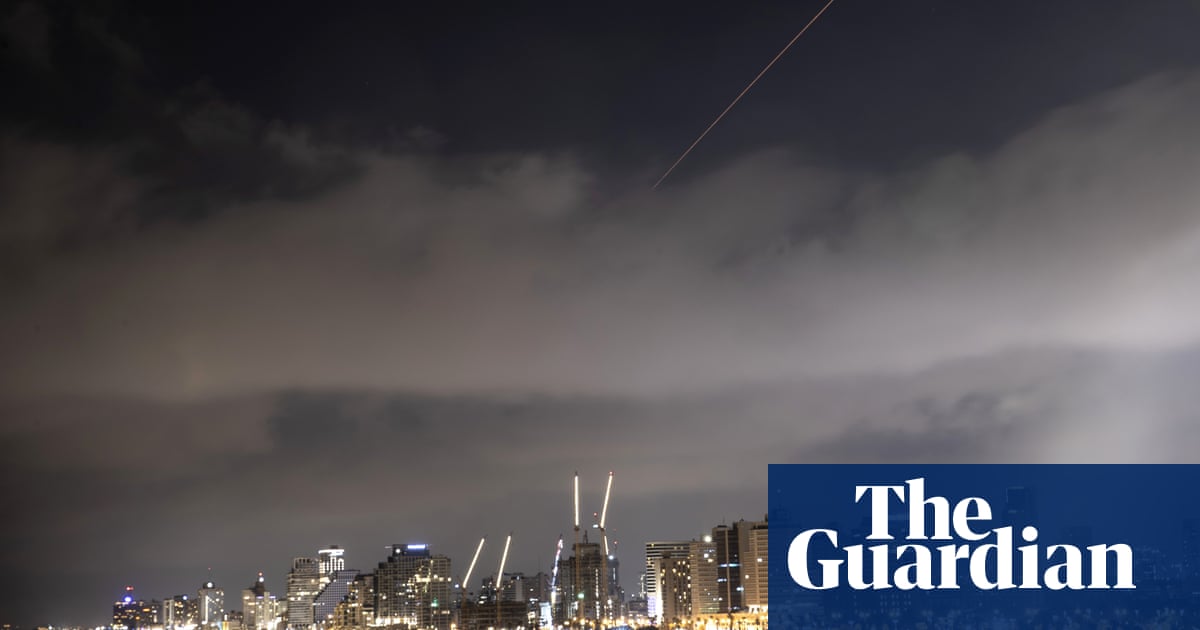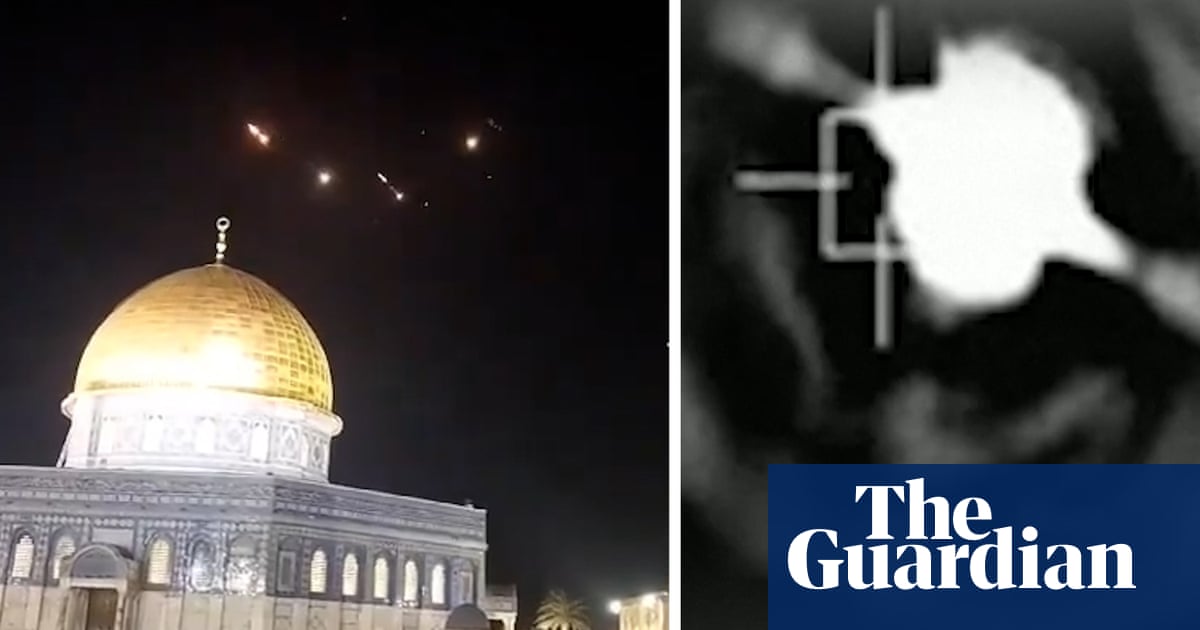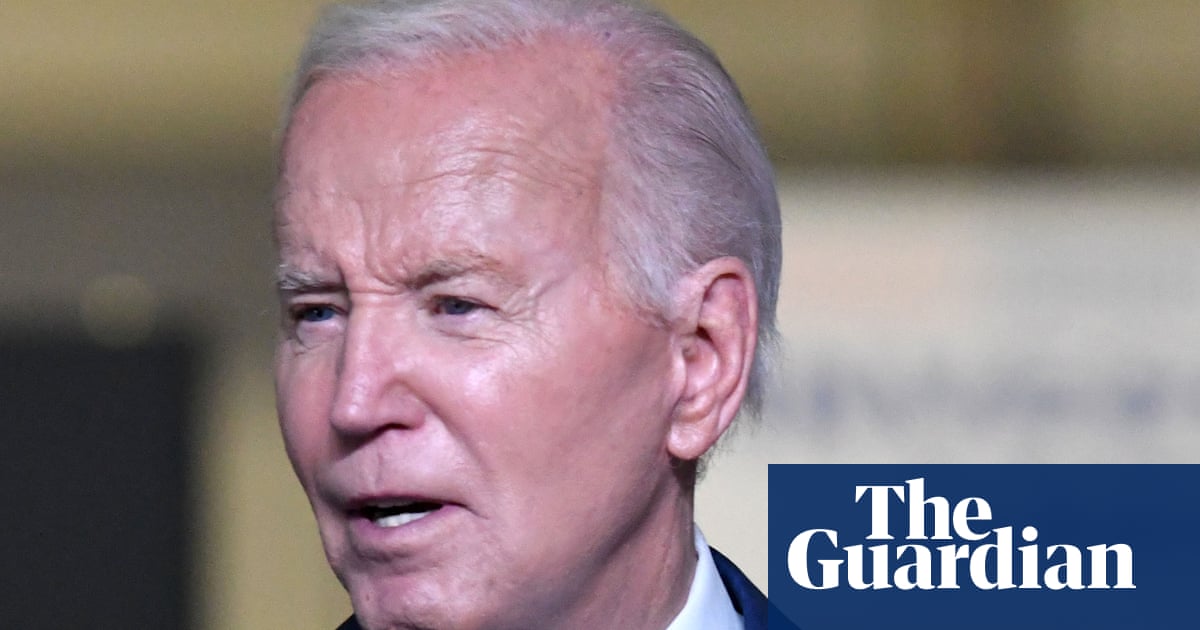
Tehran has warned it will strike again with greater force if Israel or the US retaliate for the Iranian strike on Israel that used more than 300 drones and missiles on Saturday night.
The air raids, the country’s first ever direct attack on the Israeli state, brought a years-long shadow war into the open and threatened to draw the region into a broader conflagration as Israel said it was considering its response.
“Our response will be much larger than tonight’s military action if Israel retaliates against Iran,” the Iranian armed forces’ chief of staff, Maj Gen Mohammad Bagheri, told state TV, adding that Tehran had warned Washington that any backing of Israeli retaliation would result in US bases being targeted.
Iranian officials added that regional neighbours had been informed several days before the airstrikes. Speaking to foreign ambassadors in Tehran, Iran’s foreign minister, Hossein Amirabdollahian, said Iran had also informed the US that its strikes on Israel would be “limited” and for self defence.
Israel, with the help of key western allies including the US, UK and Jordan, claimed to have intercepted 99% of the launches during the mass strike, but added that some ballistic missiles had reached Israel, damaging the Nevatim airbase in the south of the country, which remained operational.
The UK prime minister, Rishi Sunak, confirmed that RAF jets had shot down Iranian drones involved in the attack. “I can confirm that our planes did shoot down a number of Iranian attack drones,” Sunak told broadcasters. “If this attack had been successful, the fallout for regional stability would be hard to overstate.”
As the UN security council prepared to convene an emergency session, the Israel Defense Forces (IDF) said more than 350 missiles were launched during the attack from Iran, Lebanon, Syria and Yemen, and called the interception rate a “significant strategic success”.
Commenting on Israel’s response to the attack, the Israeli prime minister, Benjamin Netanyahu, posted on X: “We intercepted, we repelled, together we shall win.”
Israel’s military spokesperson R Adm Daniel Hagari, said in a televised statement that “the Iranian attack was foiled”, no drones or cruise missiles had entered Israeli territory and “only a few” ballistic missiles reached the country.
Although Israel moved to reopen its airspace, officials said the incident was not yet over.
As of Sunday morning, Israeli officials indicated no decision had been made about a response to the Iranian attack, as an official said any potential response would be discussed at the war cabinet meeting.
However, Israeli war planes were reported to be bombing Hezbollah positions in southern Lebanon.
On the Gaza front of the fast-expanding regional war, Netanyahu said Hamas had rejected a ceasefire proposal and that Israel would continue to pursue its conflict there with “full force”.
While many of the missiles and drones were brought down outside Israel’s airspace, others were intercepted over Israeli territory by its air defence interceptor system, which lit up the night sky with detonations, while air raid sirens sounded in Jerusalem and other cities.
The roar of Israeli air force jets could be heard across the country in the early hours of Sunday.
Some projectiles penetrated the defensive shield. Hagari confirmed a direct hit on an airbase in southern Israel that caused “minor damage to infrastructure” though the base remained fully operational.
One young girl was in emergency care after the attack, he said.
When asked about possible retaliation by Israel, Hagari said: “We have plans, the situation is still ongoing, we are assessing the situation, we are showing the cabinet the plans, and we are ready to do what is necessary for the defence of Israel.”
The New York Times cited Israeli intelligence sources as saying the main targets appeared to be military installations in the occupied Golan Heights, in the far north, and the Negev desert, in the far south. Tehran’s ally in Lebanon, Hezbollah, fired volleys of rockets at the Golan Heights at the same time as the Iranian bombardment, and the Iran-backed Houthi forces in Yemen claimed they had also joined the attack.
Through its mission at the UN, Iran said the mass aerial attack, which it called Operation True Promise, was a retaliation for the bombing of an Iranian diplomatic building in Damascus on 1 April, and that it now considered the matter closed unless there was further action by Israel.
“The matter can be deemed concluded,” the statement said. “However, should the Israeli regime make another mistake, Iran’s response will be considerably more severe,” the statement on the social media platform X said. “It is a conflict between Iran and the rogue Israeli regime, from which the US must stay away.”
Netanyahu spoke by phone for 25 minutes with the US president, Joe Biden, at 4am Israeli time (0200 BST), as the aerial attack appeared to peter out.
After the call, Biden said he had reaffirmed to Netanyahu “America’s ironclad commitment to the security of Israel”.
“I told him that Israel demonstrated a remarkable capacity to defend against and defeat even unprecedented attacks – sending a clear message to its foes that they cannot effectively threaten the security of Israel,” Biden said, adding that on Sunday he would convene G7 leaders “to coordinate a united diplomatic response to Iran’s brazen attack”.
Biden had interrupted a weekend break at his house at Rehoboth Beach, Delaware, and arrived back at the White House just after the first drones had been launched, meeting his top security officials in the underground situation room. US surveillance planes in the region tracked the incoming attack and US fighter jets shot down incoming drones and missiles.
There had been nearly two weeks of speculation about when, where and how Tehran or its proxy forces would respond to the 1 April strike on an Iranian diplomatic building in Damascus, which killed Gen Mohammad Reza Zahedi, a senior figure in Iran’s Islamic Revolutionary Guards, and eight other officers.
Since the war in Gaza began six months ago there have been near-daily exchanges of fire between Israeli forces and Hezbollah along the Israel-Lebanon border, which have threatened to escalate into full-blown conflict.
A direct attack by Iran on Israel, however, was not believed to be on the cards. Tehran’s leaders have previously made clear that they are not seeking a war with Israel, which could also draw in the US.












